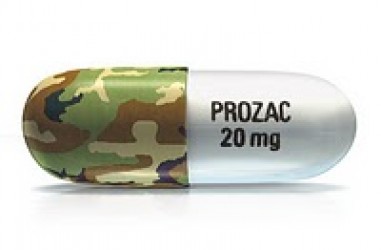Alex Constantine - May 23, 2010
 By Lisa LaMotta | Minyanville | May 20, 2010
By Lisa LaMotta | Minyanville | May 20, 2010
Ever since new management took over at the FDA, the agency has been on a mission to become more accessible to the American public. While this hasn’t yet had a dramatic effect on how the drug-approval process is conducted or how the public interacts with the agency, it now has the potential to be a major game-changer for investors.
The FDA announced Wednesday that its Transparency Task Force has come up with 21 proposals that could finally make the FDA more readily available to the average person. If you've ever been on the agency’s website, you know that its current iteration is far from user-friendly.
The proposals, based on user feedback after two public meetings, are meant to help consumers and others better understand the process the FDA takes when making decisions. The agency and the task force will be accepting public comment on the proposals and will decide in late July which of them are going to stick.
The task force’s ideas address the lack of usability on the FDA website, as well as corral information from other regulatory websites that might relate to drug products (like US Justice Dept. cases), and most importantly would make public disclosures related to drug approval, rejection, and evaluation.
That last part is incredibly important and could have pharmaceutical and biotech companies scrambling to find a way to keep this from happening. The new proposals would allow the FDA to disclose the contents of Complete Response Letters -- a practice that could devastate a company stock price. Complete Response Letters are issued by the FDA to a company when a drug is rejected. In those letters the agency tells the company why a drug wasn't approved and what steps, if any, can be taken to reach approval. This is currently a private matter between the agency and the company; it's at the company’s discretion to release the letter -- something that's virtually unheard of.
The proposals extend further to the disclosure of when the FDA has put a hold on a clinical trial, when a drug development application is withdrawn by the sponsor, whether it agrees with published reports about products with approvals pending, and why it does not approve a marketing application. This transparency would also extend to disclosure of when the FDA inspects a plant – including what plant and what sort of violations were found.
It’s somewhat shocking and amazing that the agency doesn’t disclose these things already. Any logical person would say this information is of the utmost importance to a consumer who's buying these drugs and devices. For example, disclosures of plant inspections could have alerted the public well in advance of the problems that have been recurring at the McNeil unit of Johnson & Johnson (JNJ) -- making the recent recall of children’s medication less dangerous. Further transparency regarding FDA investigations into side effects of a drug could keep many people from having to go through an experience like that of Merck’s (MRK) Vioxx -- a situation that hurt a lot of people and spiraled out of control when the company failed to properly inform consumers.
Yet, while all of these proposals would bring about a more informed consumer who's better aware of the dangers that may be lurking in his or her medicine cabinet, it could have disastrous effects on the manufacturers and their stock prices. Sales of drugs like GlaxoSmithKline’s (GSK) Avandia could have been greatly diminished if the discussions about heart problems caused by the drug had been made public without the PR spin of the pharmaceutical company.
Stock prices would also take catastrophic dives if investors were made aware that a company had withdrawn a drug application, or if the market found out that a clinical trial was being held up. Currently, pharmaceutical companies have the luxury of releasing this information on their own terms and timelines. This means that the public and the market reaction can be “handled” by public relations professionals who are skilled at downplaying these problems.
July is going to be an interesting time for the FDA and the entire pharmaceutical community. Future investors will need to be prepared for the affects a raw, spin-less flow of data can have on the companies that their portfolios depend upon.
http://www.minyanville.com/businessmarkets/articles/fda-fda-new-guidance-drug-approval/5/20/2010/id/28410






